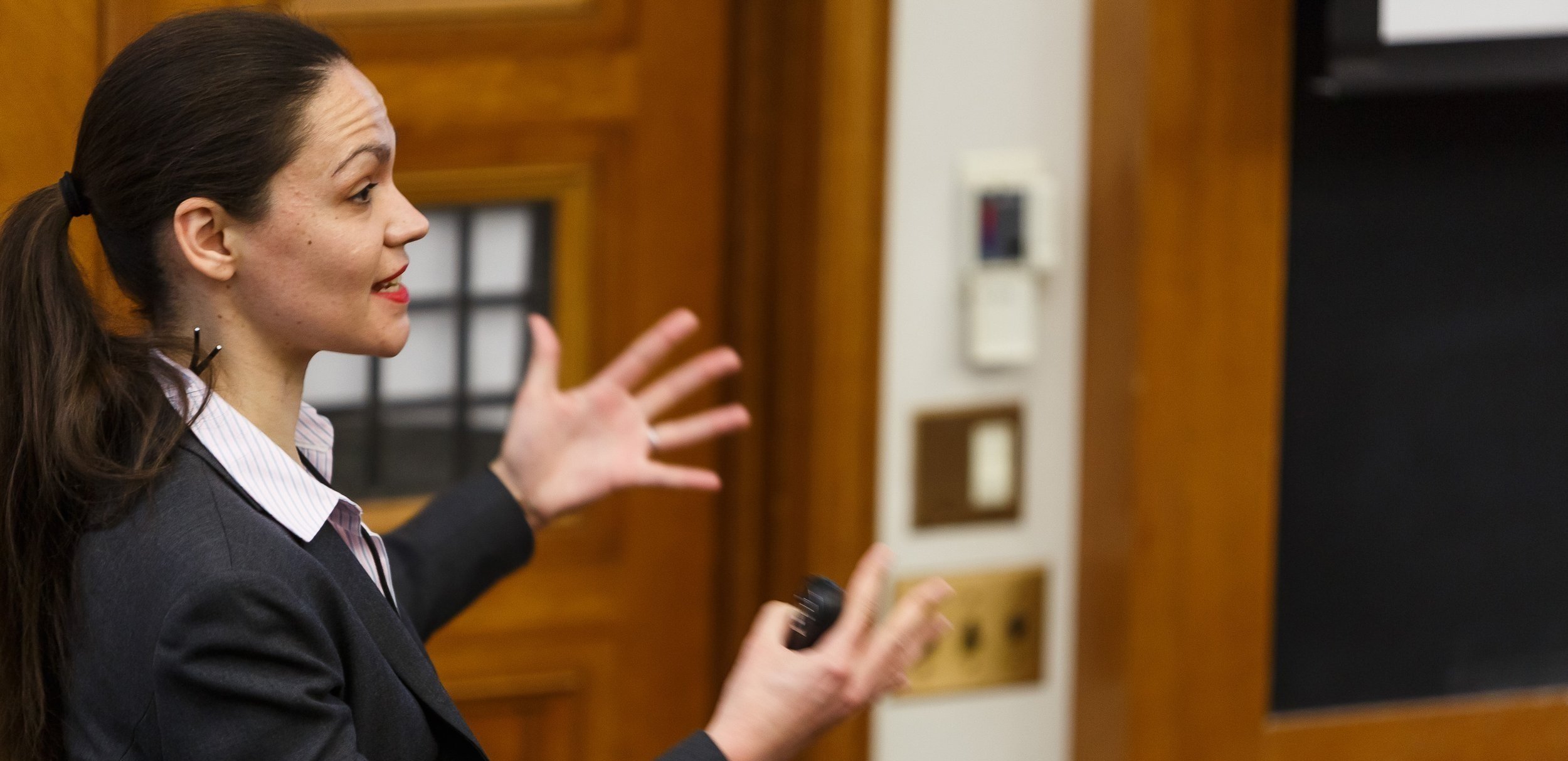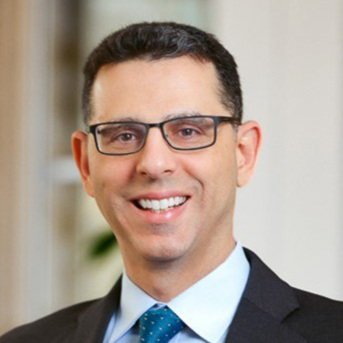
J.D.-Ph.D. in Finance Program
Are you interested in teaching in business law?
If so, you may want to consider a unique J.D.-Ph.D. in Finance program that the Center has established between Yale Law School and Yale School of Management.
The program enables students to complete all requirements for both degrees in a streamlined manner, and provides the student with the analytical tools to conduct empirical research on business law questions.
Program Alumni
Dhruv Aggarwal (J.D. ’21/Ph.D. ’23), Assistant Professor of Law and Assistant Professor of Finance (Courtesy), Northwestern Pritzker School of Law
Aslihan Asil (J.D. ’21/Ph.D. ’25), Assistant Professor, Duke University School of Law
Quinn Curtis (J.D. ’09/Ph.D. ’11), The Honorable Albert V. Bryan Jr. ’50 Research Professor of Law and Associate Dean for Curricular Programs, University of Virginia School of Law
Ofer Eldar (J.S.D. ’14/Ph.D. ’16), University of California Berkeley School of Law
Belisa Pang (J.D. '23/Ph.D. '25), Assistant Professor, the University of Michigan Law School
Adriana Z. Robertson (J.D. '15/Ph.D. '17), Donald N. Pritzker Professor of Business Law, the University of Chicago Law School
Current Students
Matthew Bondy is interested in public finance. He is currently working on projects related to the economics of crime and universal basic income.
View personal website.
Adam Callister researches the incentive structures of the U.S. securities fraud system as well as the regulation of information disclosure and market participation more broadly. Much of his research uses modeling and natural language data to offer normative insights into the effectiveness of different legal regimes.
View personal website.
Benedict (Mujin) Choi (mujin.choi@yale.edu) holds a J.D. from Yale Law School. His Ph.D. research focuses on tax, corporate finance and central banking.
Pranjal Drall is interested in the intersection of law and finance: business organizations, corporate finance, and bankruptcy with a particular focus on environmental issues.
Andrew Granato researches business organizations, tax, corporate finance, and financial and securities regulation. His research includes projects on wealth transfer via (non)taxation of life insurance policies, the impact of the law firm partnership form on lawyers' careers, and the employment of financial valuation methodologies by the judiciary. His shorter pieces include work on cyber and natural disaster insurance development, the interaction of the charitable deduction with the capital gains taxation realization rule, and the Francesca Gino-Data Colada lawsuit and data transparency in academia.
View personal website.
Kwon-Yong Jin holds a J.D. from Yale Law School and is pursuing a Ph.D. in Financial Economics at the Yale School of Management. Prior to his doctoral studies, he was a corporate associate at Wachtell, Lipton, Rosen & Katz, where his practice covered M&A, shareholder activism, capital markets, and financial institutions. His research interests are banking regulation, securities regulation, and corporate governance.
What else do I need to know about the J.D.-Ph.D. in Finance program?
-
The Center established the J.D.-Ph.D. in Finance program between Yale Law School and Yale School of Management to provide students interested in teaching business law with the analytical tools needed to conduct empirical research on business law questions. Students in the program are able to complete all requirements for both degrees in a streamlined manner.
For more information on the rationale for the J.D.-Ph.D. in Finance program, please see After the Revolution in Corporate Law by Roberta Romano, YLS Sterling Professor of Law and Center Co-Director.
-
Applicants to the J.D.-Ph.D. in Finance program must be enrolled at Yale Law School. Law students must meet the admissions requirements set by Yale School of Management for the Ph.D. program. A mathematical background, including undergraduate courses in Multivariable Calculus, Linear Algebra, Real Analysis, and Statistics/Econometrics, is typically required for admission.
The expectation is that law students will apply for admission to the Ph.D. program in their first year at Yale Law School, but they may also apply in their second year. For more information on applying to the Ph.D. in Finance program, please visit the Yale School of Management's webpage on Doctoral Programs.
Once admitted, law students will need to follow the procedures set forth by the Yale Law School Office of the Registrar to petition the Faculty Committee on Special Courses of Study for approval of the joint degree.
-
Prospective students should contact Roberta Romano, YLS Sterling Professor of Law and Center Co-Director, regarding financial aid.
-
(1) Course Requirements:
SOM: Eight courses, including the following five required courses: Economics 500 (General Economic Theory: Microeconomics); Economics 501 (General Economic Theory: Microeconomics, which is the course covering an introduction to game theory); Economics 550 and 551 (Econometrics I and II); MGMT 740 (Financial Economics I); and two additional Ph.D. level finance courses. Upon reaching Ph.D. candidacy, students are required to attend MGMT 781 (Ph.D. Seminar: Accounting/Finance) and MGMT 782 (Ph.D. PreSeminar: Financial Economics).
Law School: 71 credit units, which include the required first term courses taken in one semester (Constitutional Law, Contracts, Criminal Law and Administration, and Civil Procedure); Torts and Regulation; a course satisfying the legal ethics requirement; and 6 credit units satisfying the experiential learning requirement.
(2) Graduate School Grade Requirements:
Finance Ph.D. courses are graded according to a scale of H, HP, P, and Fail. For more information on how students are evaluated after their second Ph.D. in Finance semester, please see the Committee Report on Recommended Guidelines for Evaluating Doctoral Students at the End of Year 1 (July 2002).
Finance Ph.D. students are required to maintain an HP average to continue in the program past two years. This requirement operates such that a grade of P in one course can be offset by a grade of H in another course. In addition, the Graduate School requires all students to receive two or more grades of H to graduate.
(3) Pre-dissertation Writing Requirements:
Two papers are required: (1) a paper fulfilling the SOM second-year research paper requirement and (2) a paper fulfilling one of the Law School’s writing requirements (substantial or supervised analytic writing). Students present the second-year paper in ECON 679 (Financial Economics Student Lunch). An accepted SOM second-year research paper may fulfill the student’s remaining Law School paper requirement by registration for independent research credit with the student’s Law School faculty advisor. One of these papers must qualify as the student’s prospectus.
(4) Qualifying Exam in Finance:
Qualifying exam in three courses: the section of the qualifying exam pertaining to MGMT 740 and two additional doctoral finance courses. The qualifying exam is taken after the student has completed all of the required graduate finance courses.
(5) Dissertation and Oral Defense.
A typical dissertation contains three essays. They do not need to be that closely related. An acceptable thesis might be titled “Three Essays in Law and Finance.” Prior to final acceptance of the dissertation, students must pass a public defense. Before a public defense can be scheduled, all three members of the committee must agree that the student and the dissertation itself are ready. All members of the faculty are invited to a dissertation defense. After the defense, the faculty in attendance will meet to discuss the dissertation. The faculty may pass or fail the student. In addition they may grant a conditional pass. This is done when the faculty believe there are only some minor problems with the dissertation and delegate the final decision regarding these corrections to the committee. After the faculty pass on the dissertation (or the committee passes on the dissertation in the case of a conditional pass), the dissertation is submitted to the Graduate School. The Graduate School will assign readers who make a final acceptance on the dissertation. The reader assignment is governed by the Graduate School; however, they usually assign the two secondary advisers and one other faculty member.
-
Please contact Roberta Romano, YLS Sterling Professor of Law and Center Co-Director, or Sarath Sanga, YLS Professor of Law and Center Co-Director.











